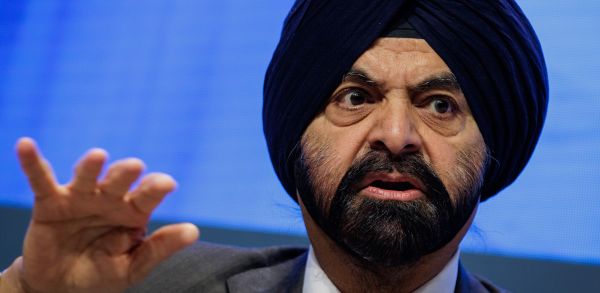MARRAKESH, October 20, 2025 — In a sweeping address at the World Bank Group’s Annual Meetings, President Ajay Banga delivered a rallying call for development focused on job creation, private sector mobilisation, and lasting economic stability in an era of global demographic upheaval and conflict recovery.
Banga, speaking recently in Marrakesh, Morocco, at the plenary session chaired by Guinea-Bissau’s Deputy Prime Minister Correia, underscored the need to “treat development not as charity, but as strategy”, placing jobs at the heart of the institution’s agenda. “A job is more than a paycheck,” he said. “It’s purpose. It’s dignity. It is the straightest line to stability.”
A world in flux
The speech opened with reflections on recent developments in Gaza and Syria, which Banga described as “giving us reason to hope that peace is possible wherever conflict exists.” He announced that the World Bank is already working with expert groups on reconstruction plans in both Gaza and Ukraine, while continuing to support conflict prevention strategies in fragile states such as Sudan, Yemen, and the Democratic Republic of Congo.
But his overarching message focused on a looming demographic shift that he called “one of the great transformations in human history.” By 2050, over 85 percent of the global population will live in what are currently considered developing countries. Africa, in particular, faces rapid growth, with Nigeria alone expected to add 130 million people.
“If we don’t act now,” Banga warned, “the energy and ambition of 1.2 billion young people entering the workforce could turn to despair.”
Jobs at the centre
Banga unveiled a clear pivot in the World Bank’s strategy—towards jobs as the measure and mission of development. Over the past two years, the institution has undergone internal reforms aimed at speeding up project approvals, improving client-facing structures, and aligning operations across its arms—IDA, IBRD, IFC, MIGA, and ICSID.
He outlined a new three-pillar framework for delivering jobs: Public investment in infrastructure, healthcare, education, and energy—laying the foundations for economic opportunity; policy reform to ensure stable, transparent governance and a healthy business environment; and private sector Growth through tools like capital mobilisation, guarantees, and risk insurance.
“The continuum—foundation, policy, capital—is how we translate ambition into jobs,” Banga said. “It’s how we move from potential to paychecks.”
Sector strategies and private capital
Five high-impact sectors were highlighted for their job-creating potential: infrastructure and energy, agribusiness, healthcare, tourism, and value-added manufacturing—including critical minerals.
Among the initiatives detailed: Mission 300 aims to connect 300 million Africans to electricity by 2030, including renewed interest in nuclear energy with IAEA support; a new healthcare initiative seeks to deliver primary care to 1.5 billion people. Indonesia’s model of birthday-based health visits was cited as a scalable example; AgriConnect is helping smallholder farmers transition from subsistence to surplus, backed by $9 billion in annual financing, and a minerals and mining strategy is being finalised to ensure more processing is done locally, rather than relying solely on raw exports.
To finance this vision, Banga emphasised the critical role of private capital. The World Bank has begun bundling assets into investable securities—a model he described as “transformational.” A recent $510 million transaction, packaging IFC loans into rated products, was met with strong investor demand.
The institution aims to triple its use of guarantees by 2030, expand local currency lending to 40%, and deploy innovative instruments like junior equity and debt-for-development swaps.
Smarter, more resilient development
Banga also addressed climate resilience and institutional reform as essential to smart development. Last year, nearly half of World Bank financing had climate co-benefits, with growing emphasis on flood-proof infrastructure, climate-smart agriculture, and efficient logistics.
He highlighted renewed efforts to strengthen public finances, combat corruption, and build government capacity through digital tools and data-driven governance. More than 200 senior officials have now been trained via the World Bank’s new Knowledge Academy.
Measurable impact
Since launching a new corporate scorecard in 2024, the World Bank Group has reported measurable improvements: 60 million people gained access to electricity; 70 million received education or skills training; 300 million accessed healthcare services; and 20 million farmers connected to inputs and markets.
“Each figure represents a life changed,” Banga said. “These aren’t just larger numbers—they reflect sharper focus and a shift in mindset.”
A Vision grounded in dignity
In closing, Banga reinforced that the World Bank’s reforms are rooted in a broader vision of human dignity and shared prosperity.
“When we focus on jobs, we are not turning away from healthcare, infrastructure, education, or energy—we are doubling down on all of them,” he said. “A job is what happens when a school leads to a skill, when a road leads to a market, when energy powers a business. That is how we turn investment into impact.”
Buy your copy of thecooperator magazine from one of our country-wide vending points or an e-copy on emag.thecooperator.news
